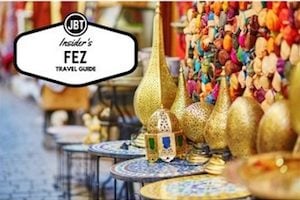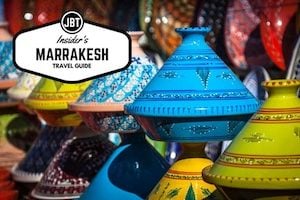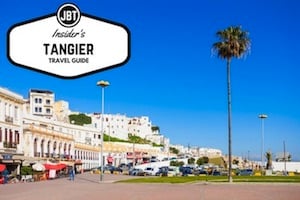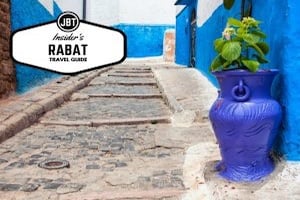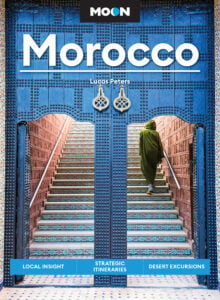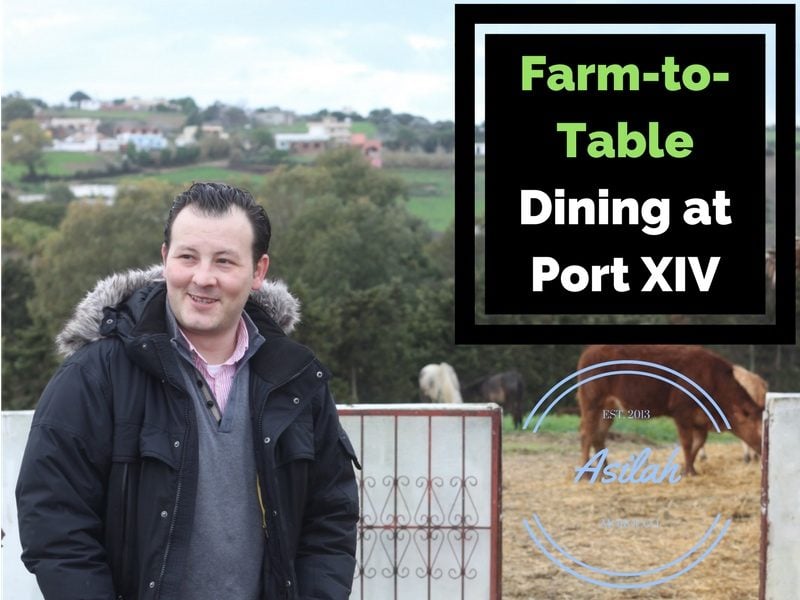
At first glance, one might mistake the misty, rolling hills outside of Asilah for the rugged highlands of Scotland. On a rainy, blustery winter’s day — where the only thing standing in your way is perhaps a massive muddy puddle or an enormous bull that looks a bit like a shaggy Shetland cattle — it’s easy to see why you might confuse the two beautiful landscapes. It’s even easier to see why you might confuse them when Karim Ben Ali, a Scottish-Moroccan, begins talking to you with his soft Scottish lilt.
This land is the heart and soul of Karim’s flourishing restaurant, Port XIV nestled along the photo-friendly waterfront boulevard of Asilah in north Morocco, a town well known for its artistic flair.
The story behind Port XIV and the farm-to-table fare made possible by the family farm is a story rooted in the love of fresh food, olives and Moroccan land.
Several years ago, Karim’s vision was unique. He was inspired by his natural, pastoral upbringing and decided to open up a farm-to-table restaurant in Asilah. In took a few years, but in 2013, Karim opened the doors to Port XIV for the first time.
Port XIV is named in homage to the 14th century, a period in Asilah’s history when it could be argued that the flourishing town was at its trade and merchantry height. The concept of farm-to-table is still pretty revolutionary to Morocco. There are not too many farm-to-table type restaurants in the country. Karim meticulously showcases the best of his farm at Port XIV with a gourmet menu that sports local delights with an international flare, all seasonally-appropriate, of course.
“Crab is a specialty of Asilah,” Karim says, “and our delicate crab meat and avocado salad with sweet chili vinaigrette perfectly exhibits this regional delight.”

Another house specialty is the farm-raised beef tenderloin with peppercorn cream sauce. Staying true to uncomplicated, flavorful cooking with the freshest of ingredients is his goal.
Lastly, ever-respecting his home region and town, Karim sources the remainder of his restaurant’s innovative menu with local market food. The furthest he goes in search of fresh goods is up the north coast to Tangier or right around the corner to nearby Larache. For Karim, it’s as much about supporting the local economy in his hometown as it is about his own professional growth. He could not do the latter without the bond to his home.
“My mum embraced Moroccan food and culture from the start,” Karim says, talking about his Scottish mother, “so it was entirely normal for my sisters and I to embrace it too. The kitchen was the heart of our home. Cooking and sharing meals together was, and still is, our time together.”
Growing up, it was natural for Karim to be in the kitchen with his mother and the rest of his family. He is a colorful mix of his two ancesteries, Moroccan and Scottish. In part, this is what makes him a nature-loving man and an intrepid entrepreneur.
The family farm is an intricate and beloved part of the family and most of the families who work the farm have been with Karim’s family for generations.
“This land is the only true working farm still standing around Asilah,” Karim says. “The area was once historically rural, fertile farmland. In recent years all of the other farms have been sold off to build cheap mass housing.”
The farm grows a bountiful array of fruits, vegetables and livestock. Depending on the season, it produces cherry tomatoes, peas, broccoli, lemons, pomegranates and other roots, fruits and veggies. The farm also raises honey bees. Free-range eggs and chickens are also an intricate part of the farm while cattle and sheep are meticulously raised for slaughter.

Olives, however, are the driving force of the future of Karim’s land. These proud, sturdy trees — a symbol of Morocco and its fertile, Mediterranean landscape — are the core of the farm. Karim and his loyal crew meticulously cultivate the best olives for Port XIV. These juicy, sweet fruits are harvested and made into golden, cold-pressed olive oil. The farm yields around 12,000 kilos of olives per year, which produce about 2,500 liters of olive oil.
Karim, the ever-adapting businessman with a thirst for quality and a desire to bring a touch of his home to the restaurant, envisions branching out, much like an olive tree, he intends to one day produce his precious olive oil to sell commercially.
As Karim sees it, it’s important to hold on to traditions and values, but it is also essential to grow and change with the times. Moving forward with the farm means adapting to change, developing and honing more quality products yet holding on to the best possible standards. In essence, it’s keeping the integrity of the farm and the family.
As for the future, Karim is nowhere near finished with his dream. He plans to eventually open an eco-friendly boutique hotel on a sliver of the farm overlooking the olive grove and rolling hills.
About the Author
 Tara Fraiture is a dual British-American national. She now lives in Morocco with her cat, three kids and husband. In her free time, Tara enjoys belly dancing (badly) and impersonating accents (she’s a whiz, much to her children’s delight). Tara has happily lived in Cameroon, Egypt, Senegal, El Salvador, and Qatar. After many years of teaching French and Spanish, this global nomad found her passion (or perhaps her demise) in freelance journalism and she has been furiously writing ever since. And as she puts it, “writing is cheaper than therapy.” Humor is part of her mantra, as well as finding stories with heart and human connection.
Tara Fraiture is a dual British-American national. She now lives in Morocco with her cat, three kids and husband. In her free time, Tara enjoys belly dancing (badly) and impersonating accents (she’s a whiz, much to her children’s delight). Tara has happily lived in Cameroon, Egypt, Senegal, El Salvador, and Qatar. After many years of teaching French and Spanish, this global nomad found her passion (or perhaps her demise) in freelance journalism and she has been furiously writing ever since. And as she puts it, “writing is cheaper than therapy.” Humor is part of her mantra, as well as finding stories with heart and human connection.

